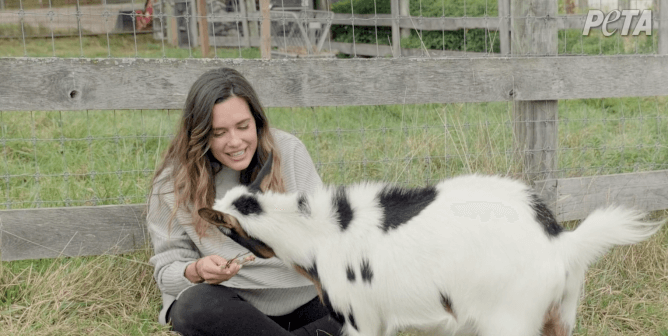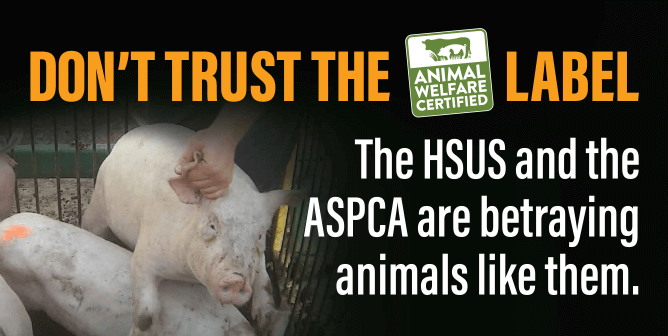‘Humane Meat’ and ‘Free-Range Eggs’ Do Not Exist: Help Stop Humane Washing
“Humane meat” is a myth. No matter how appealing the packaging may look, all substances taken from animals are the result of exploitation. There is simply no kind way to steal animals’ milk, eggs, or flesh. Their bodies belong to them, not us. The overwhelming majority of animal-derived foods—including “humane” meat, eggs, milk, and cheese—come from farms where huge numbers of animals are packed in as tightly as possible to maximize output and profit.
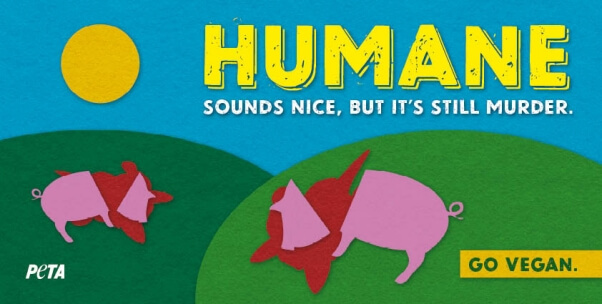
Why ‘Humane Meat’ Doesn’t Exist
Eggs labeled “cage-free” or “free-range” typically come from hens who are confined to mud- and feces-filled pens for most of their lives. There is nothing natural about cheese made from the milk of cows who are forcibly impregnated so that they’ll lactate. Pigs raised on organic farms and those raised on factory farms are transported to the same terrifying slaughterhouses, where some are scalded to death while they’re still conscious. Even small and local farms profit from exploiting and killing animals and selling their milk, eggs, and flesh to humans.
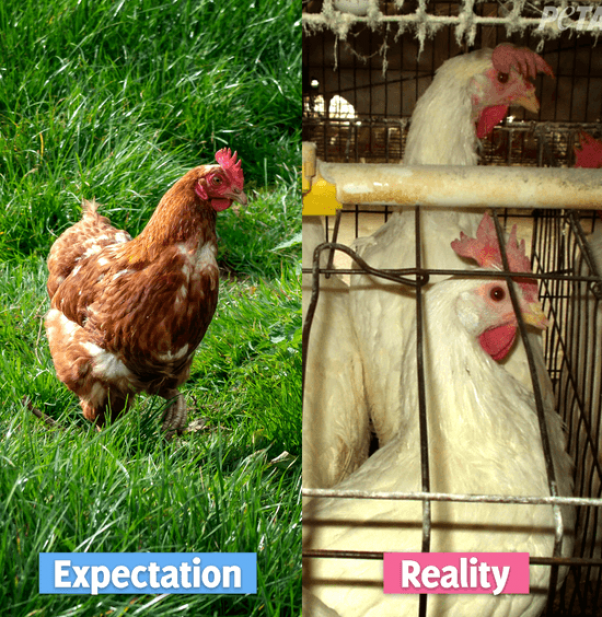
The use of labels like “cage-free,” “natural,” “organic,” and “local” is humane washing. These labels are simply marketing tools meant to attract a customer base that’s increasingly horrified by the way animals used for food are exploited. Even the U.S. government knows that such labels don’t necessarily mean better standards for animals. And animals raised on organic farms “need not be treated any more humanely than the animals in conventional farming.”
These shocking eyewitness videos show how animals really live on farms, no matter what labels claim:
In 2021, a PETA undercover investigator recorded workers punching, throwing, and stomping on turkeys at “humane” farms connected to a Whole Foods supplier.
The Happy Egg Co.—one of the largest “free-range” egg producers in the U.K.—depicts “happy hens” roaming vast green fields in its marketing materials, but PETA U.K.’s footage tells a different story.
Eggs from this “free-range” chicken farm were “certified humane.”
These goats were beaten for “organic” milk.
These chickens were raised in a manner described as “high welfare.”
This is how pigs were treated on a farm that supplied “humanely raised pork” to Whole Foods.
Chickens who lived like this were used for eggs sold under a “free-range” label.
Daisy Sour Cream claimed that its products came from “the best cared-for cows on the planet.” Here’s what we saw on a farm that supplied milk to the company.
A farm that raises “heritage” turkeys called these birds “happy.”
Cruelty by the Numbers
In the U.S., 99% of all animals raised for food live on factory farms, which cram pregnant pigs into metal crates too small for them to turn around in or pack chickens by the thousands into windowless sheds.
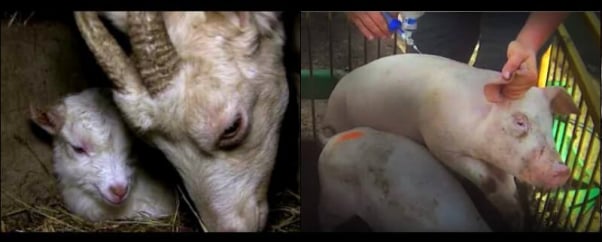
Globally, more than 200 million animals are slaughtered for food every day. Every single one is a unique individual who wants to live a life free from suffering—not be violently killed.
There are zero federal laws in the U.S. that protect chickens from abuse on farms. In fact, chickens and other birds are not protected by federal “humane slaughter” laws. “Cage-free” and “free-range” terms are meaningless for chickens, as most birds never see the light of day on farms that make these claims.
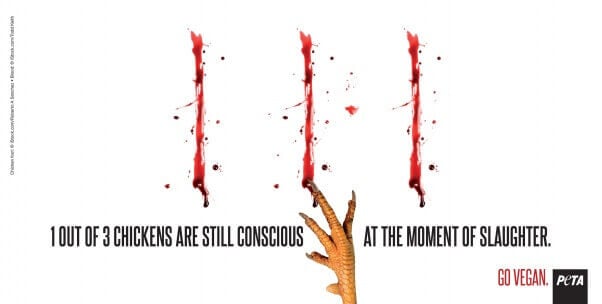
The United Nations found that 70% of new human diseases—including COVID-19, SARS, Ebola, and the swine flu—originated in animals. Many of those have been directly linked to animals used for food.
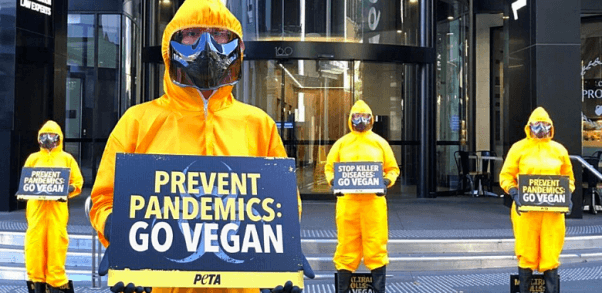
It’s not just farming practices that need to change—personal eating habits do, too. Going vegan saves the lives of nearly 200 animals per year, all of whom feel joy, love, and pain, just as humans do.
In a thought-provoking speech, PETA President Ingrid Newkirk explains why there is no such thing as “humane meat”:
Eat Vegan to Stop Their Suffering
The only truly humane option is choosing healthy, delicious, and readily available vegan foods instead of animal-derived ones. And if you need help, you’ve come to the right place! We’ve got all the tips and tools you’ll need to go—and stay—vegan. Check out these free resources:

